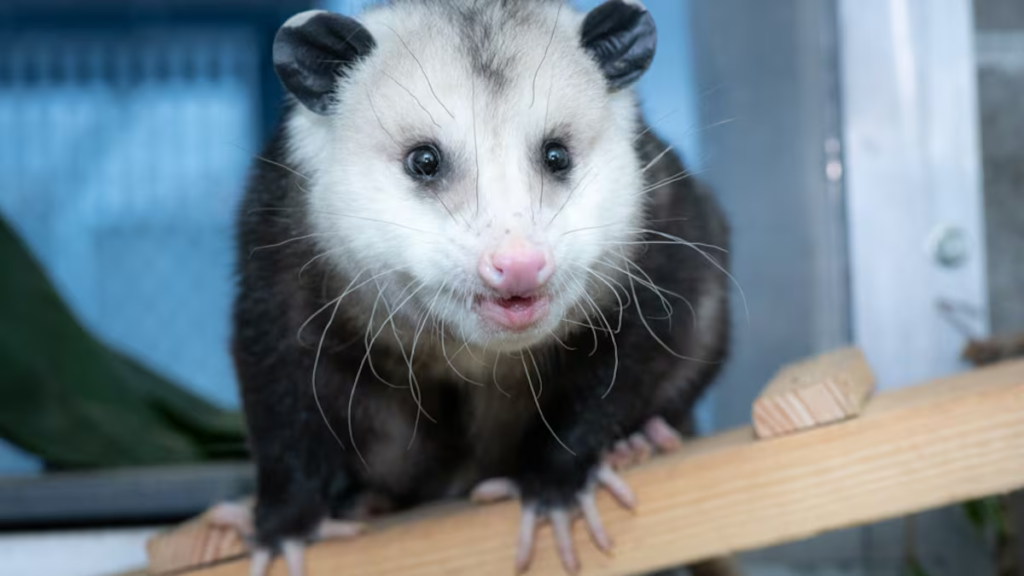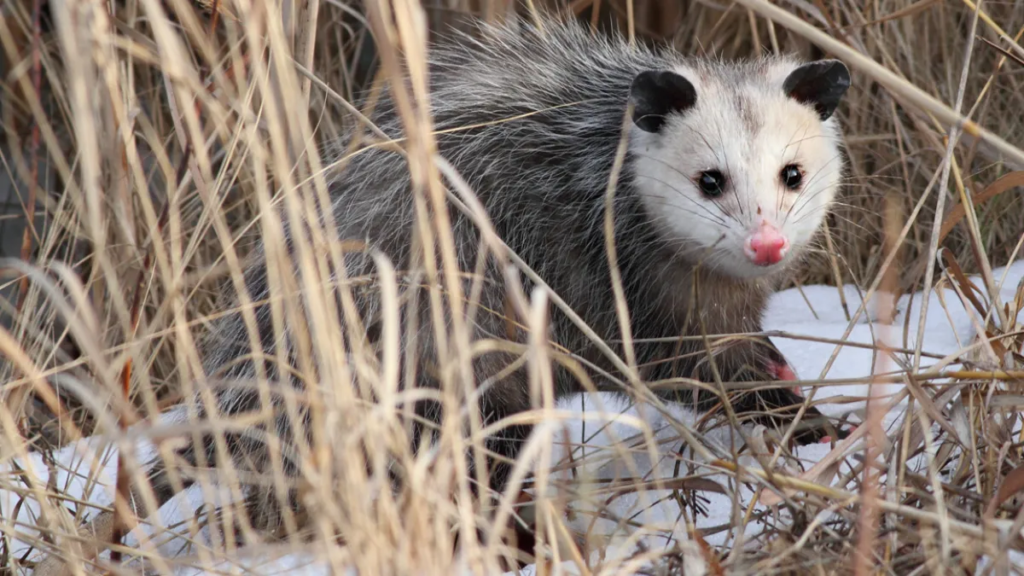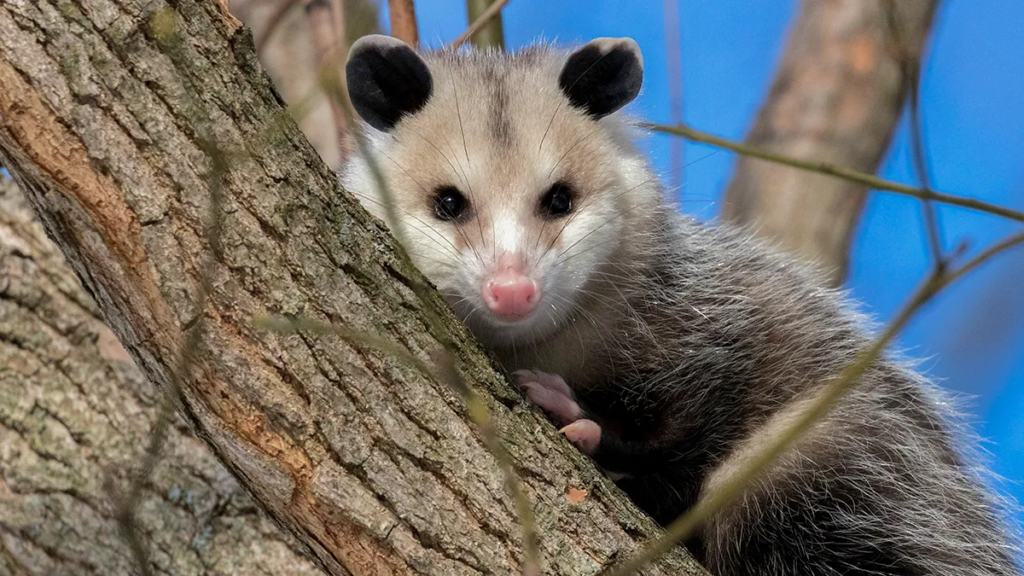Possums, also known as opossums in North America, are fascinating marsupials that have adapted to a wide range of environments. Their omnivorous diet and opportunistic feeding habits make them highly versatile creatures capable of thriving in diverse habitats. This article delves into the dietary preferences of possums, their feeding behaviors, and their ecological significance, offering a comprehensive understanding of these remarkable animals and their role in the ecosystem.
Overview of Possums

Possums belong to the marsupial family and are primarily found in Australia, New Guinea, and Sulawesi, while opossums are native to the Americas. Despite their differences in geographic distribution, both possums and opossums share strikingly similar dietary traits. These nocturnal animals are known for their scavenging abilities and adaptability, which allow them to survive in a variety of environments, including urban, suburban, and rural areas.
Possums have evolved to thrive in challenging conditions, from dense rainforests to arid deserts. Their remarkable adaptability is not just a result of their diet but also of their ability to modify their behavior and habitat use. The possum’s ecological flexibility is one of the key factors behind their success across different regions of the world.
Omnivorous Diet
Possums are omnivorous, meaning they consume both plant and animal matter, which provides them with a broad range of nutrients. This dietary flexibility allows them to exploit different food sources depending on availability. Possums are known to adapt their diets based on the seasons, local conditions, and the foods that are most accessible to them. Below is a detailed breakdown of their dietary preferences:
Plant-Based Foods

Possums consume a wide variety of plant-based foods, which make up a significant portion of their diet:
- Fruits: Possums are particularly fond of fruits such as apples, bananas, berries, and melons. These fruits are not only rich in vitamins but also provide a valuable source of energy, which is essential for their nocturnal activities.
- Vegetables: They enjoy vegetables like carrots, potatoes, and leafy greens. These foods provide a variety of essential nutrients, such as fiber, vitamins, and minerals, contributing to their overall health and well-being.
- Flowers and Nectar: Possums are known to feed on the nectar of flowers and can be important pollinators in some ecosystems. This mutualistic relationship benefits both the possum and the plants they feed on, as they help to transfer pollen from one flower to another.
- Seeds and Nuts: Seeds and nuts are rich in proteins and fats, making them an essential part of a possum’s diet. These foods help to sustain their energy levels and are also a good source of essential fatty acids, which contribute to healthy fur and skin.
Animal-Based Foods
While possums are mainly herbivores, they are also opportunistic carnivores. Their animal-based diet includes:
- Insects: Possums consume a wide variety of insects such as beetles, cockroaches, slugs, and snails. This helps them play an important role in controlling local insect populations, particularly in urban areas where pests can be abundant.
- Small Rodents: Possums may occasionally prey on small rodents, especially when other food sources are scarce. This carnivorous behavior contributes to controlling rodent populations, which can otherwise become problematic in certain environments.
- Birds and Eggs: Possums may take advantage of easy food sources like birds and their eggs, especially if these are readily available. This opportunistic feeding behavior further highlights their adaptability to changing food sources.
- Reptiles and Amphibians: Lizards, frogs, and small snakes also form part of a possum’s diet. Their ability to hunt and eat a variety of animal species contributes to their ability to survive in diverse environments.
- Carrion: As scavengers, possums will feed on carrion, including roadkill. This scavenging behavior helps clean up the environment by removing decaying animal bodies, thus preventing the spread of disease.
Miscellaneous Foods

Possums are highly opportunistic feeders and will take advantage of any food source available, including:
- Garbage: Urban possums often forage in trash cans and compost heaps for scraps. While this can be seen as a nuisance by some, it is part of their natural scavenging behavior that helps them thrive in cities.
- Pet Food: Possums have been known to raid pet food bowls left outside, particularly in suburban areas. This is a common behavior in many nocturnal animals that are adept at taking advantage of easy food sources.
- Birdseed: Possums are also attracted to bird feeders, where they can access seeds that might otherwise be consumed by birds. Their ability to scavenge in these places demonstrates their adaptability in urban settings.
Feeding Behavior
Possums are primarily nocturnal, meaning they are most active during the night. Their keen sense of smell, combined with their excellent night vision, allows them to locate food in the dark. They are opportunistic feeders, meaning they will consume whatever is most accessible and abundant at the time, whether it’s fruit, insects, or scavenged food from human settlements.
Possums are solitary creatures, often foraging alone and using a variety of techniques to secure food. Their agility allows them to forage in both trees and on the ground, and they can navigate a wide range of environments, from forests to urban areas.
Ecological Significance
Possums play a vital role in maintaining ecological balance through several important functions:
- Pest Control: By consuming insects and rodents, possums help regulate populations of pests that can harm crops and other wildlife. This natural form of pest control reduces the need for chemical pesticides and supports healthier ecosystems.
- Pollination: Possums help pollinate certain plants by feeding on flowers and nectar. In some cases, they may be the primary pollinators of certain species, contributing to the biodiversity of their habitats.
- Waste Management: As scavengers, possums play a crucial role in cleaning up carrion and organic waste. Their consumption of dead animals and decaying plant matter helps prevent the spread of disease and maintains a healthier environment.
- Tick Reduction: Possums also help control tick populations. By grooming themselves and consuming ticks during the process, possums reduce the spread of tick-borne diseases such as Lyme disease and babesiosis, which can be harmful to humans and other animals.
Feeding Possums: Dos and Don’ts
While possums are perfectly capable of finding their own food, some people choose to feed them. However, it is essential to do so responsibly to avoid creating dependency or disrupting their natural behaviors.
Do:
- Provide fresh fruits, vegetables, and nuts, which mimic their natural diet. These foods will give them the proper nutrients without causing harm.
- Place food in secure containers to prevent attracting other wildlife or pests.
Don’t:
- Feed possums processed or sugary foods, such as bread or junk food, as these can harm their health and lead to obesity or other medical issues.
- Overfeed possums, as this can lead to dependency, disrupt their natural foraging behaviors, and encourage them to become too reliant on humans for food.
Challenges and Adaptations
Possums face several challenges in the wild, including habitat loss, urbanization, and competition for food. However, their ability to adapt has allowed them to thrive in a wide range of environments, from suburban areas to city centers. Their omnivorous diet and opportunistic feeding habits enable them to survive even when food sources are limited or unpredictable.
Possums’ capacity to adapt to changing environments and food availability makes them one of the most resilient species in the animal kingdom. Their role as both predators and scavengers, as well as their contribution to pollination and waste management, makes them indispensable to the ecosystems in which they live.
Conclusion
Possums are remarkable creatures with highly diverse dietary preferences and feeding behaviors. Their omnivorous diet, combined with their scavenging habits, allows them to thrive in a variety of environments and contribute to the balance of their ecosystems. Understanding their diet and ecological role highlights the importance of these often-misunderstood animals and encourages us to coexist with them responsibly. By providing food responsibly and respecting their natural behaviors, we can help ensure that possums continue to play their vital role in maintaining ecological health for generations to come.
Also Read: World’s Hottest Pepper: The Fiery Legacy of Pepper X






